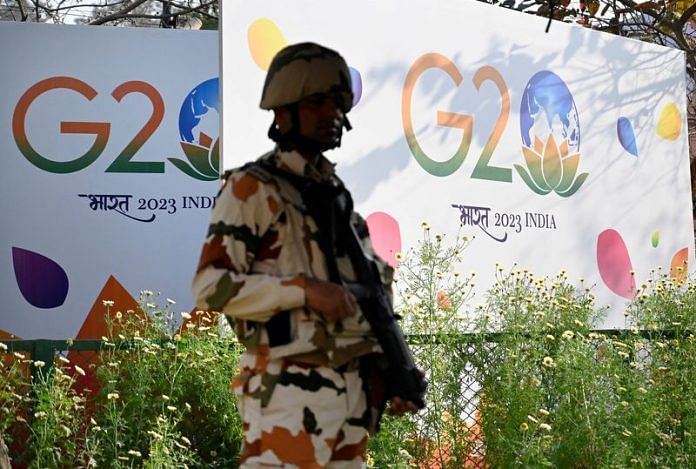By Praveen Paramasivam and Kate Abnett
CHENNAI/BRUSSELS (Reuters) -Climate talks between representatives of the Group of 20 countries (G20) failed to reach a consensus on emission reduction and mitigation targets, an official said.
Developed countries in the group demanded mitigation of greenhouse gas (GHG) emissions by 2025 to limit global warming to around 1.5°C, and a reduction of absolute GHG emissions by 43% by 2030.
Both demands were opposed by developing countries, the official, who did not want to be named, said.
The EU’s Environment Commissioner criticised the outcome of the meeting in the Indian city of Chennai, which he said showed G20 countries were “nowhere” on their commitments to address climate change.
Speaking at the end of the meeting, Virginijus Sinkevicius said some delegations had tried to walk back previous climate pledges – a stance he said Europe could not accept.
“We were asked to make bold choices, to demonstrate courage, commitment and leadership. But we, collectively, failed to achieve that. We cannot be driven by the lowest common denominator, or by narrow national interests. We cannot allow the pace of change to be set by the slowest movers in the room,” he said.
India’s environment and external affairs ministries did not respond to an email sent by Reuters seeking comments on the commissioner’s remarks.
The failure to reach an agreement comes just a week after the G20 major economies’ disagreement on phasing down fossil fuels following objections by some producer nations.
India’s environment minister Bhupendra Yadav said the G20 presidency will shortly issue an outcome statement and a chair summary instead of a joint communique.
A joint communique is issued when there is complete agreement between member nations on all issues.
(Reporting Praveen Paramasivam in Chennai; Sarita Chaganti Singh and Aftab Ahmed in Delhi; Kate Abnett in Brussels; editing by John Stonestreet and Angus MacSwan)
Disclaimer: This report is auto generated from the Reuters news service. ThePrint holds no responsibilty for its content.



